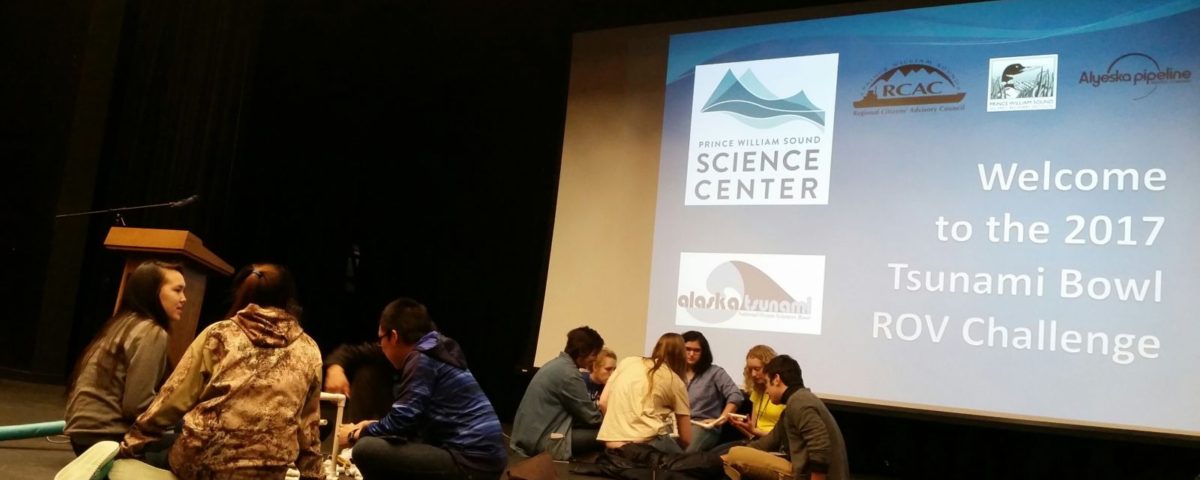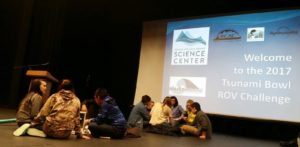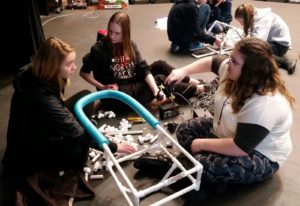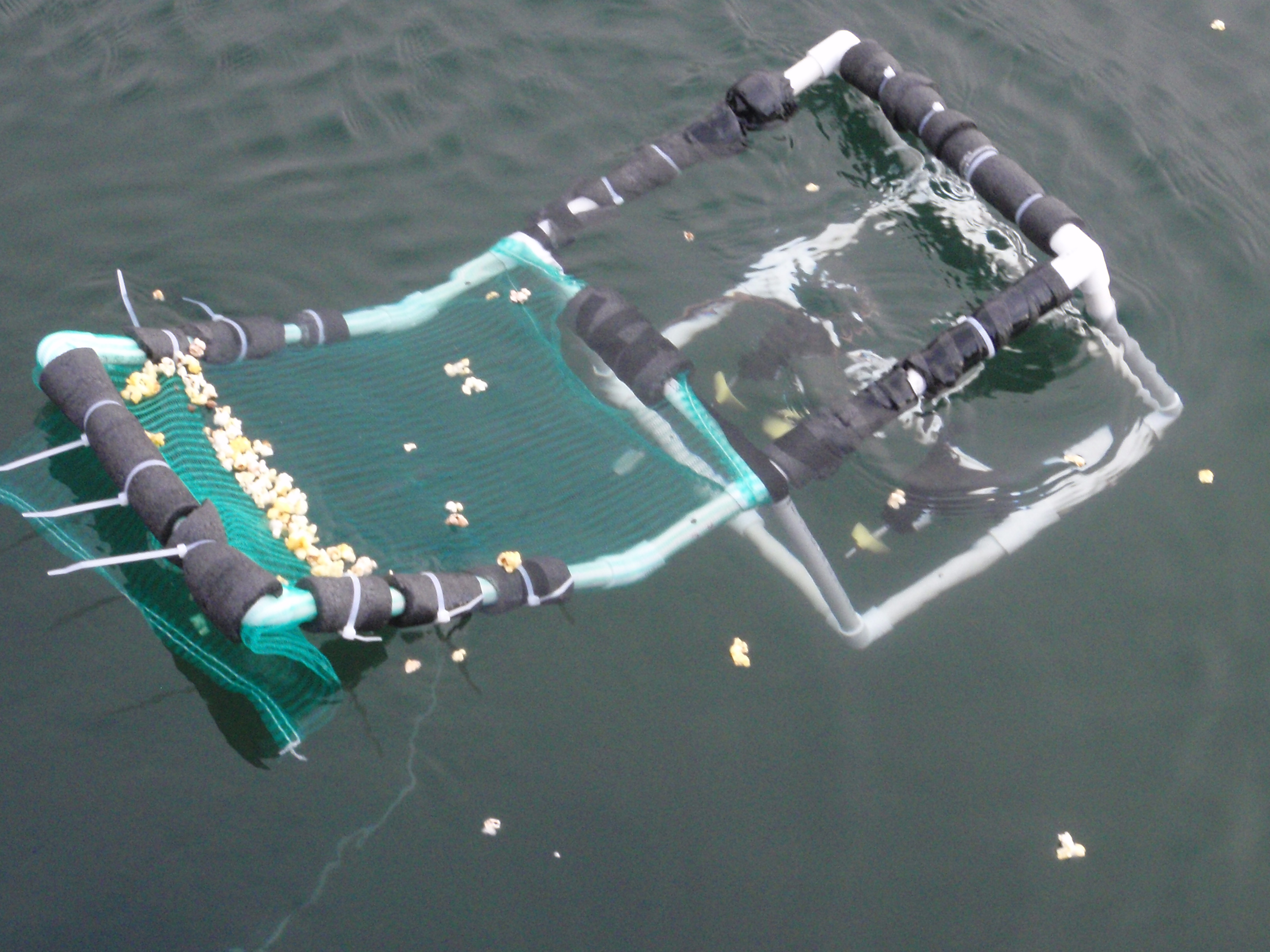Tsunami Times

By Stefanie Tschappat
A Tsunami is defined as, “an arrival or occurrence of something in overwhelming quantities or amounts.” At this year’s, National Ocean Sciences Bowl, regionally known as The Tsunami Bowl, the overwhelming occurrence of brain power put forth by Alaskan adolescence, from every corner of this great state, was a force to be reckoned with. With names like, Hooked on an ‘eeling, Get Nauti, Higher Porpoise, and Smoltification Edumacation, these high schoolers are the, creme de la creme, of excellence among students pursuing ocean studies.
This year, I was fortunate to tag along with the Cordova team, Tsunami Bowling for Soup, and their coach Lauren Bien, Science Education Coordinator for the Prince William Sound Science Center, who led their team to a 5th place finish, up from 13th place in 2016. This year’s topic was Resource Management in a Warming Pacific. Each team submitted an in-depth research paper on the topic, and then gave an oral presentation on their work to a judging panel of scientists. Following these events is a quiz competition where teams compete against each other, and the clock, to answer toss-up, anything to do with the ocean, related questions. There are also team challenge questions, which require critical analysis and written answers, that test students’ critical thinking skills. It was pretty amazing to witness the tenacity and dedication of these students and the effort they have made to broaden awareness of ocean research and its value.
As an optional event, and one that is always a big hit at the Tsunami Bowl, is the ROV Challenge. Running the event gave me the opportunity to work with some of the Tsunami Bowl students. This year we had four teams participate in the challenge; Chickens of the Sea and Seizing Seals from Palmer, Eliimaq Maklak of Scammon Bay, and Jolly Fish from Wasilla. After a brief introduction to the history of underwater Remotely Operated Vehicles (ROV) and their use for oil spill prevention, each team was provided a bag of: PVC pipes, electrical tape, zip ties, nippers, battery and motor. The teams were tasked to design and build an ROV that would compete in five ocean (in this case poolside) tasks for hypothetical use at the Valdez Marine Terminal of the Alyeska Pipeline. ROV tasks include inspecting berth infrastructure, maneuvering underwater obstacles, securing an underwater anchor, and responding to a simulated small “oil spill”.
The same perseverance and team spirit these kids kept under the pressures of the Tsunami Bowl quiz competitions prevailed during the ROV event as well. It was rewarding for everyone and the pool rang with cheer when a team completed the challenge. So while the snow continued to pile up on a cold winter day in February, we were all content and barefoot, poolside, “flying” ROVs.
Many thanks to the supporters who helped make the ROV Challenge possible, including the Oil Spill Recovery Institute, Prince William Sound Regional Citizens’ Advisory Council, and Alyeska Pipeline. Once again, it was a hit.






